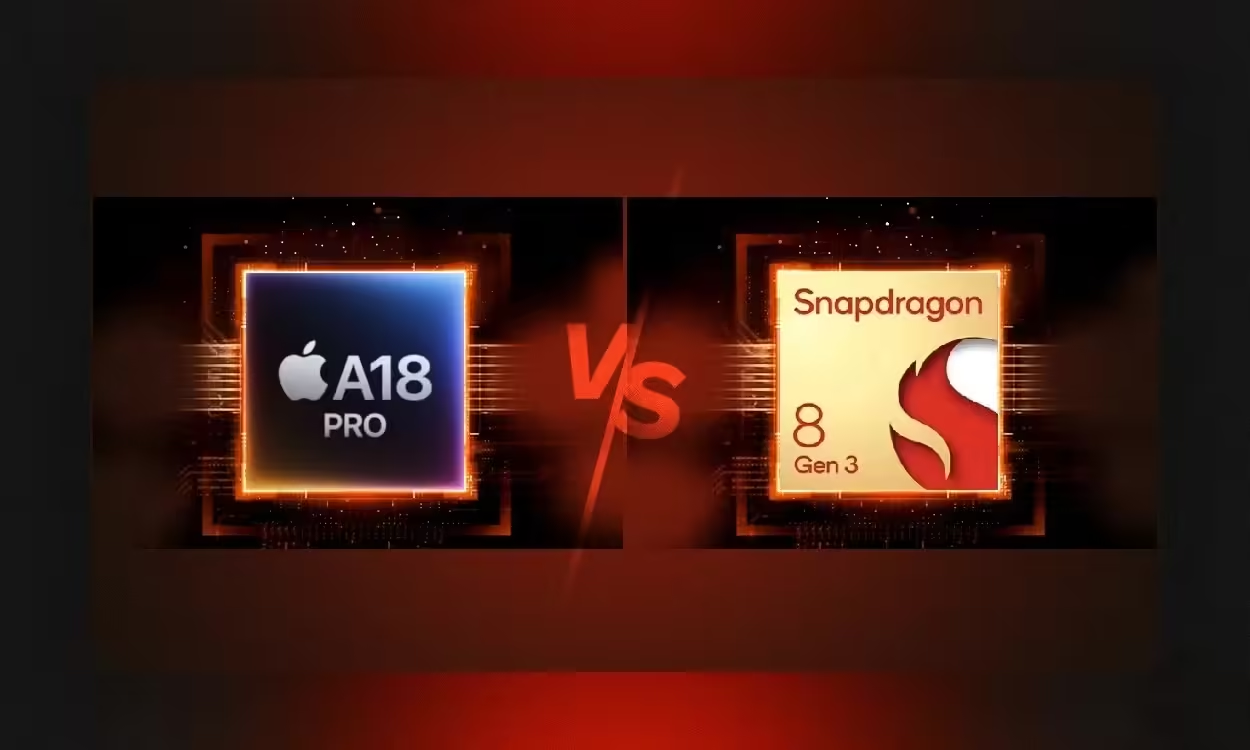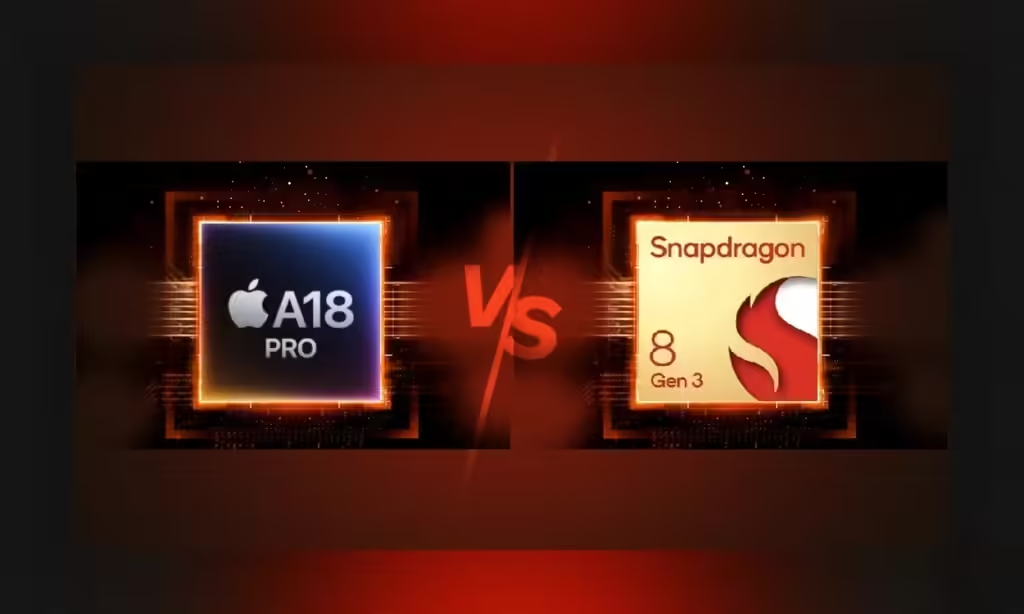
Apple has launched its flagship iPhone 16 Pro and 16 Pro Max, both featuring the powerful A18 Pro chipset. The A18 Pro has made waves for its impressive speed and unmatched efficiency. But how does it compare to the Snapdragon 8 Gen 3, the top-performing chipset in the Android world? Let’s dive into a detailed benchmark comparison between the A18 Pro and Snapdragon 8 Gen 3 to find out.
A18 Pro vs Snapdragon 8 Gen 3 Performance: Specifications
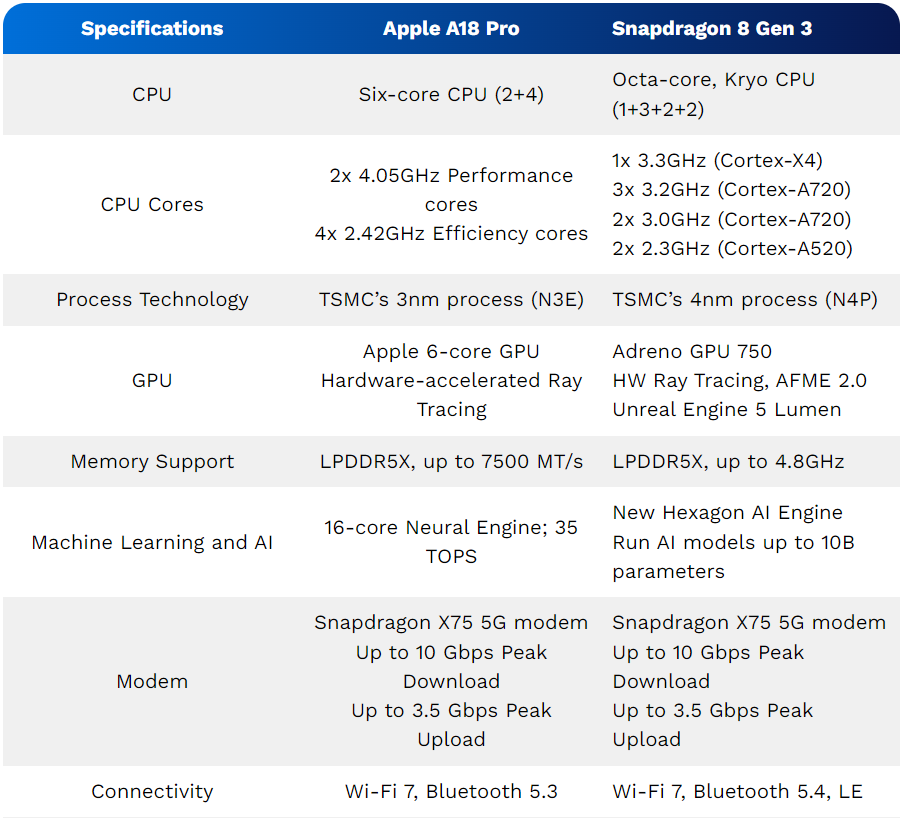
A18 Pro vs Snapdragon 8 Gen 3 Performance: Geekbench 6 CPU
In the Geekbench CPU test, the A18 Pro achieved a single-core score of 3,358 and a multi-core score of 8,184. Built on the Armv9.2a architecture, the A18 Pro includes two new SME units (ML accelerators), contributing to slightly improved scores on the latest Geekbench 6.3 benchmark, which recently added SME support.
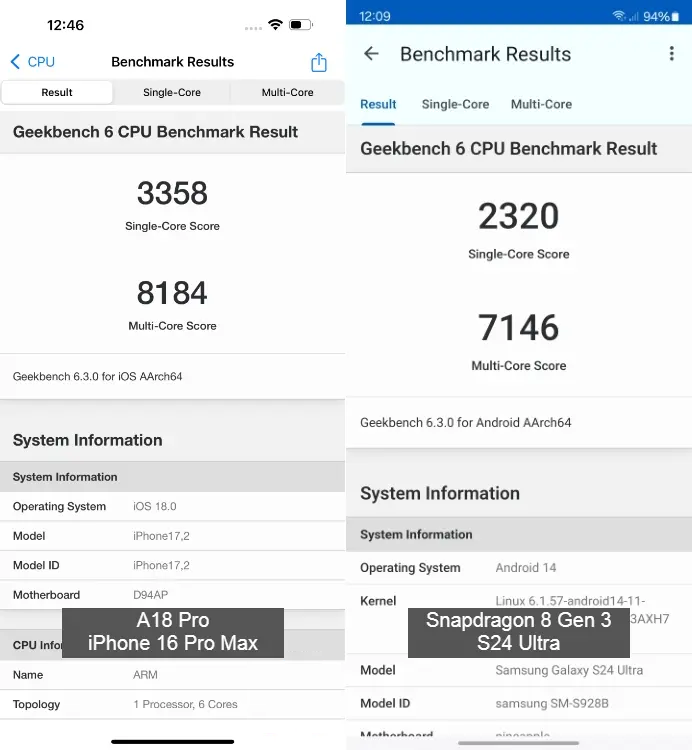
In comparison, the previous Snapdragon 8 Gen 3 scored 2,320 in single-core and 7,146 in multi-core tasks. Since it’s based on the older Armv8 architecture, it lacks SME support.
Overall, the A18 Pro CPU is approximately 45% faster than the Snapdragon 8 Gen 3 in single-core performance. For multi-core tasks, it’s about 14% faster. The smaller gap in multi-core performance is due to the Snapdragon 8 Gen 3 having eight CPU cores, compared to the A18 Pro’s six.
A18 Pro vs Snapdragon 8 Gen 3 Performance: AnTuTu Benchmark
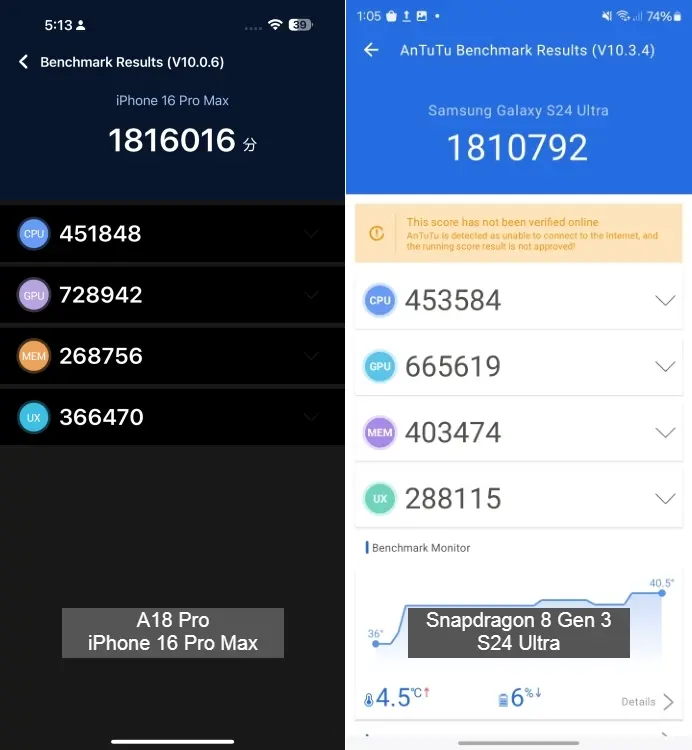
In the AnTuTu benchmark, the A18 Pro and Snapdragon 8 Gen 3 deliver same performance. In our tests, the A18 Pro recorded a score of 1,826,016 points, whereas the Snapdragon 8 Gen 3 scored 1,810,792 points. CPU performance is nearly identical between the two, but the A18 Pro delivers 10% better graphics performance in the GPU department.
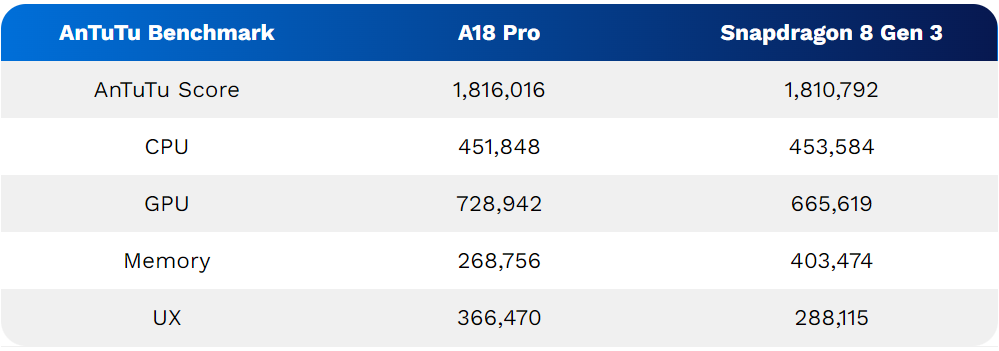
A18 Pro vs Snapdragon 8 Gen 3 Performance: 3DMark Wild Life Extreme Stress Test
In the 3DMark Wild Life Extreme Stress test, the A18 Pro’s 6-core GPU achieved a best loop score of 4,574 points and a lowest loop score of 3,096 points, with a stability rating of 67.7%. In comparison, the Snapdragon 8 Gen 3’s Adreno 750 GPU performed better initially, with a best loop score of 5,136 points. However, after multiple rounds, its lowest score dropped to 2,697 points, resulting in a lower stability of 52.5%.
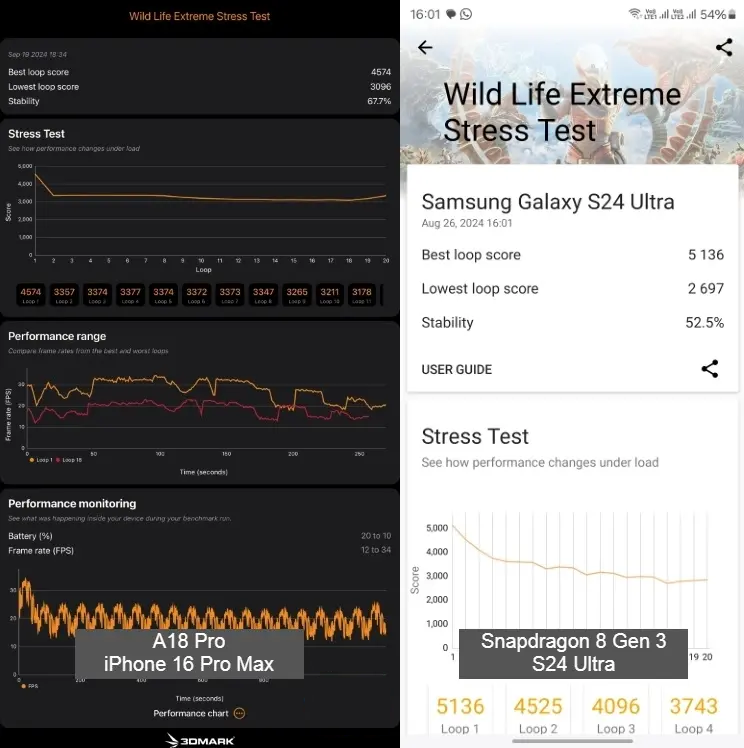
This indicates that while the Snapdragon 8 Gen 3 can deliver an initial GPU performance boost, it struggles to sustain peak performance over time. The A18 Pro, on the other hand, maintains consistent graphics performance for a longer duration, making it the better choice for extended gaming sessions.

A18 Pro vs Snapdragon 8 Gen 3 Performance: Geekbench AI
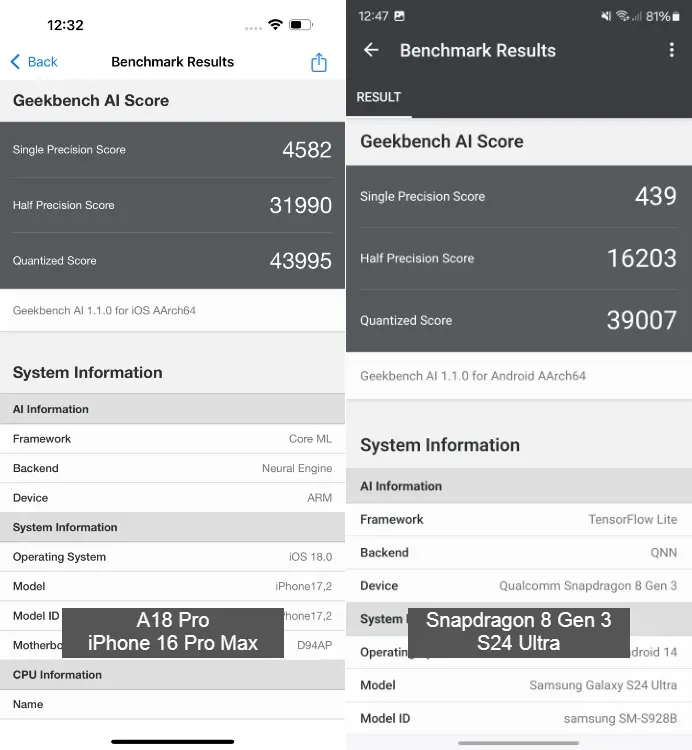
Lastly, we turn to the Geekbench AI test, which assesses the Neural Engine/NPU. The test was recently updated to version 1.1, enhancing scores overall and introducing support for TensorFlow Lite and the QNN framework for Android devices. With the NNAPI framework now deprecated, this allows for a true apples-to-apples comparison between Android and iOS devices.
In our tests, the A18 Pro performed significantly better in the Single Precision (FP32) data type, scoring 4,582 points, while the Snapdragon 8 Gen 3 managed only 439 points. The full precision format offers greater accuracy for AI/ML tasks, though it requires more memory to run.
In Half Precision (FP16), the A18 Pro’s 16-core Neural Engine offers twice the performance of the Snapdragon 8 Gen 3’s Hexagon AI engine. In the more memory-efficient but slightly less accurate Quantized format (INT8), the A18 Pro is approximately 13% faster than the Snapdragon 8 Gen 3.
It’s evident that Apple leads in on-device AI computation. With the addition of SME units in the CPU, the A18 Pro stands out as a superior chipset for running AI/ML features locally.

Final Verdict
It’s clear that the A18 Pro outperforms the Snapdragon 8 Gen 3 across the board, whether in CPU, GPU, or Neural Engine/NPU capabilities. Apple continues to lead with the most powerful and efficient CPU cores, while its GPU delivers sustained graphics performance. In the realm of on-device AI tasks, Apple continues to lead the industry.
However, all eyes are now on the upcoming Oryon-powered Snapdragon 8 Gen 4, which promises a significant performance leap. Based on leaks, Qualcomm is expected to surpass Apple in the CPU department for the first time. The Snapdragon 8 Gen 4 is set to debut next month at the Snapdragon Summit event.
